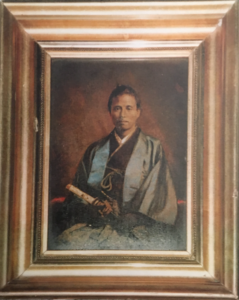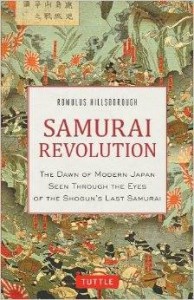Katsu Kaishū: “the shōgun’s last samurai” (2)

[In 1868], Katsu Kaishū, who had risen through the ranks by force of character and a keen and creative mind, was in command of the Tokugawa military. He had at his disposal a fleet of ships and thousands of troops raring to attack the enemy. But just who was this multifaceted, enigmatic man upon whom the deposed shōgun rested his life and the fate of his family and indeed the entire country? Unlike [Shōgun Tokugawa] Yoshinobu’s other advisors, he hailed neither from a noble house of feudal lords charged for generations with the Bakufu’s [shōgun’s government’s] highest offices, nor from the privileged families of Tokugawa samurai whose sons traditionally filled the most important magistracies and commissionerships. Born to the humblest of samurai families in service of the shōgun, he was at once the consummate samurai and streetwise denizen of downtown Edo; an expert swordsman who refused to draw his sword even in self-defense; a statesman who commanded the respect of allies and foes alike; an inviolable outsider within the shōgun’s regime; an iconoclast, historian, prolific writer, and creator of the Japanese navy. And though his loyalty to the Tokugawa was unsurpassed, he was nevertheless a friend and ally of men who had overthrown the government. [from Samurai Revolution]

